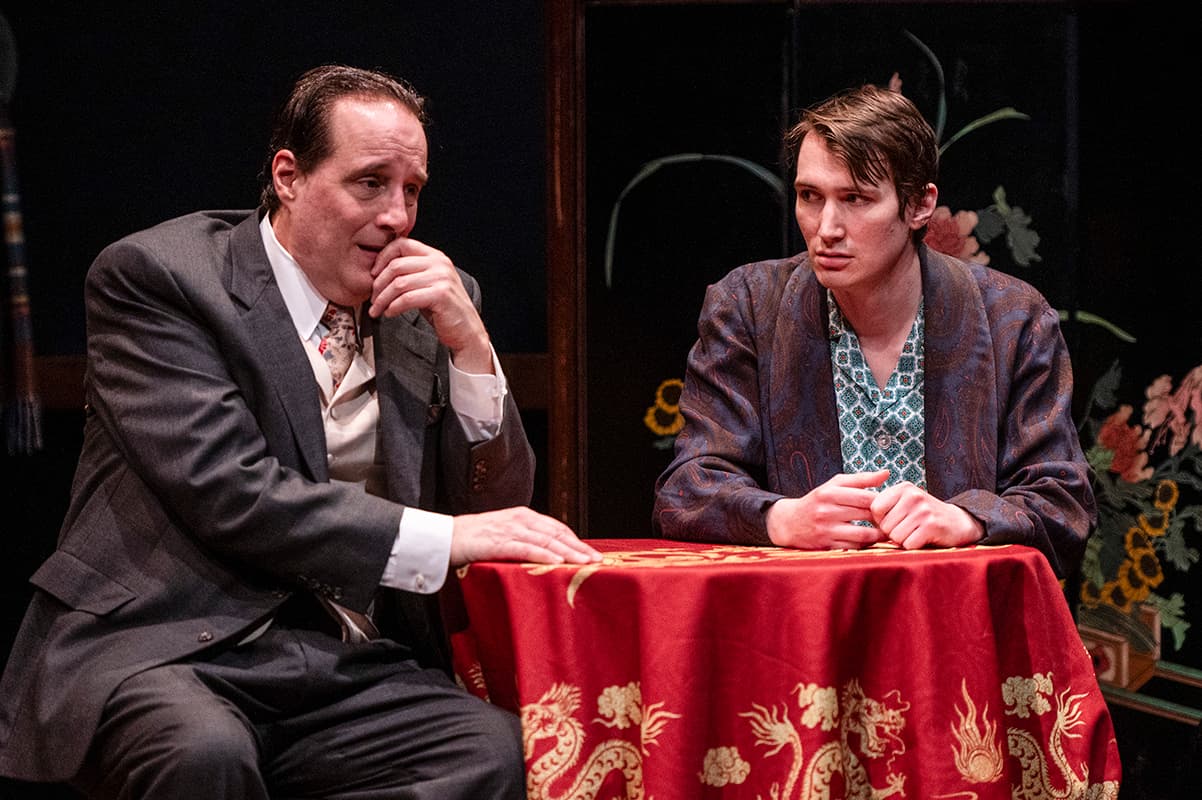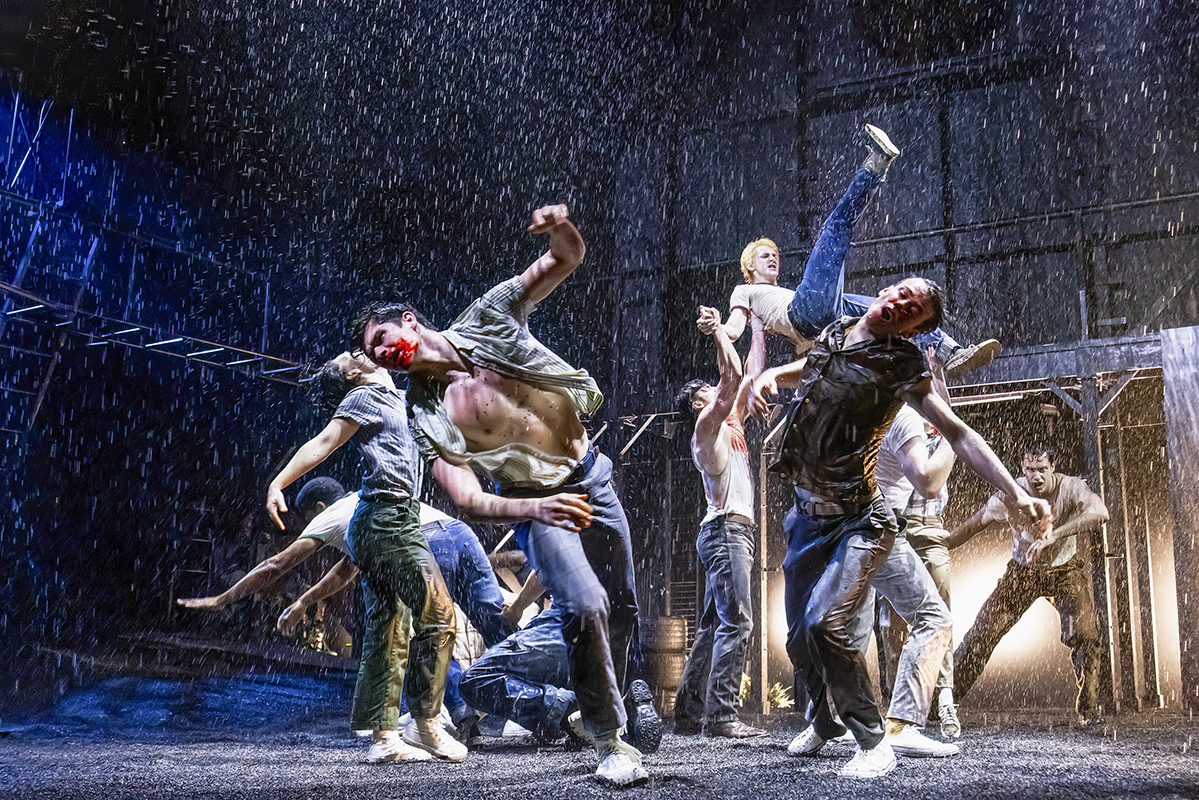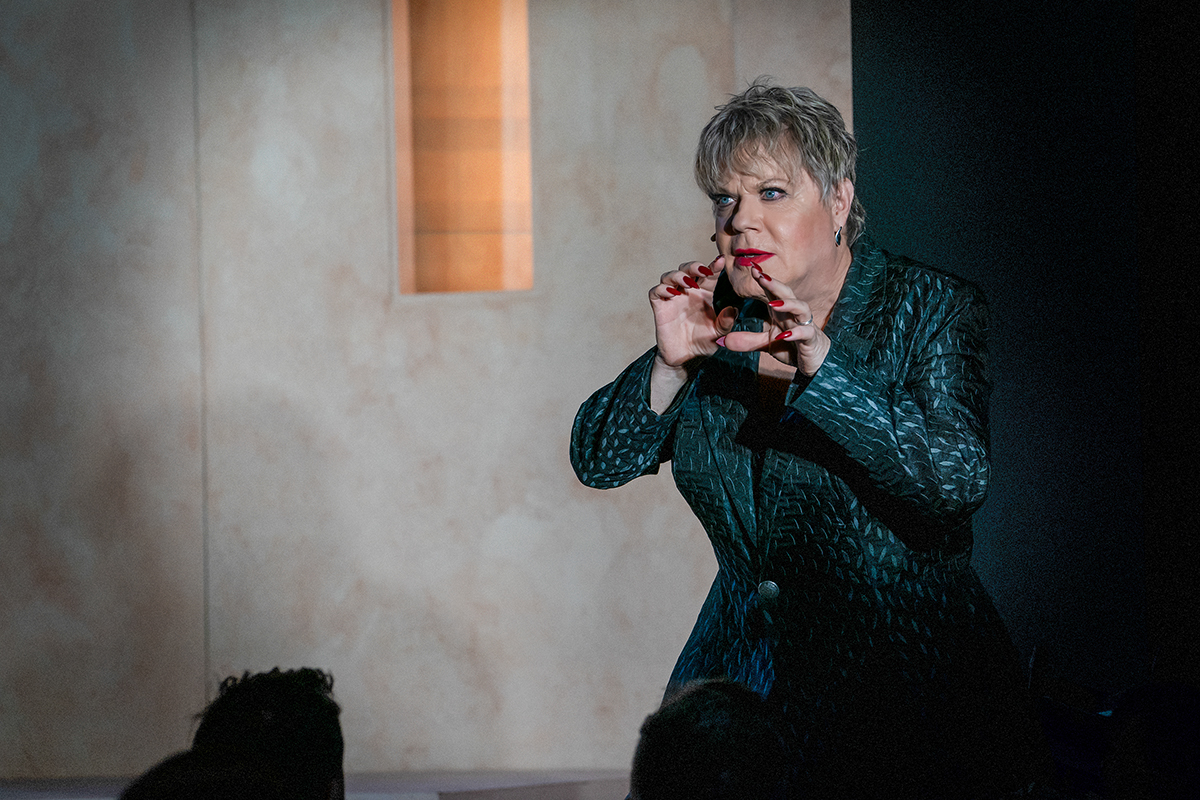‘King Lear’ Review: Troubled King
Despite Patrick Page's pulsar-like charisma in the titular role, 'King Lear' never quite comes together in a satisfying whole.

Given the dark nights of COVID, it’s hard not to celebrate the STC’s march back to normalcy with a thrice-extended run of the perennial crowd-pleaser, King Lear (★★★☆☆). For many, the chance to see some full-blooded classical theater live and in person will be enough. Unfortunately — and despite Patrick Page’s pulsar-like charisma in the titular role — this production isn’t the reward it should be. Put simply, it feels somehow undercooked with too many ingredients that never quite come together.
At least part of the problem is an ensemble that presents as largely green, with young actors who seem almost — but not quite — role-ready. Not only does this distract, but it throws Page’s heavily-crafted, larger-than-life Lear into too stark a relief and, more often than not, gives him too little to play against.
In fact, there are moments that evoke more the seasoned professor surrounded by his dedicated and ardent students than a fully-baked production. There is certainly energy and enthusiasm, but there is also a self-consciousness that makes it hard to lose oneself. You know the fiction is faltering when key moments draw titters instead of gasps.
The other issue here is too little sense of the family dynamic when it counts. A primary hurdle is director Simon Godwin’s choice to put the women behind a podium when Lear sets the crisis in motion by asking each daughter for the measure of their love.
Although it may fit with the military hanger set and this Lear’s showy ego, it puts the actors at too much of a remove at a pivotal moment. This was the time for expressive eyes or touching hands telling us something of the emotional history of this powerful patriarch. It wasn’t the time to be lining up with about as much enthusiasm as mildly-rivalrous employees attending a mandatory conference.
Of the three daughters, Rosa Gilmore delivers the strongest impression as a Goneril, possessing an angry-realtor edge which in some ways fits with Page’s uber-groomed, alpha Lear. One can just about believe that her brittle affect and soon-to-be-revealed ruthlessness has been born of surviving Page’s charming but mercurial narcissist.
It’s harder to draw a reading from the other daughters, with Stephanie Jean Lane looking the part of the spoiled Regan but failing to appear as anything more than incidental. And although she is as wholly earnest as is called for, Lily Santiago’s Cordelia gives no sense of her tender bond with Lear. This is a challenge Godwin should have met, and it haunts the production.
Case in point is one of the play’s most touching scenes, when Lear rallies his failing faculties to soothe Cordelia’s fear of their impending imprisonment. If Page captures the right pitch and tenor, without the suggestion of genuine love between these people, the pathos evaporates almost instantly. And as technically stellar as Page’s later climactic howl at Cordelia’s subsequent death — and as much as he emotes through Lear’s crushingly beautiful lament — it feels trapped in a vacuum.
This leads to another overarching quibble — it never works to rely on music as a substitute for authentically-drawn emotion.
Matters aren’t helped by costuming verging on caricature, with leather pants tight enough — or green enough — to distract, furs verging on the comical, and Cordelia in a smock that too obviously telegraphs her virtue as well as her fate. As for the startling view up Lear’s hospital johnny, one can only report that Page is “every inch a king!” as well as a method actor.
What does work here is a steadfast performance by Craig Wallace as the ill-fated Gloucester, a victim of the machinations of his illegitimate son, Edmund, and set upon by Regan and her husband Cornwall in their grab for power.
Wallace gives this performance the kind of old-school conviction that quiets the space and invites the best kind of contemplation of Shakespeare’s words. His despair at being blinded is never over-the-top and he expresses well the urge to end his life and avoid the further savagery of Lear’s unraveling court.
Another strength is Shirine Babb’s Kent, bringing a sparkling charisma and much facility with the language. As the Fool — usually a touchstone for Lear’s coming pathos — Michael Milligan seems subsumed in props and yet more awkward costuming. He is aggressively frumpy, a purveyor of red clown noses, and spends his final scene scrabbling in a clever but cumbersome “hovel.” There is no room for the friendship of these men or the Fool’s sadness at the great man’s decline.
Of the host of younger performers, the clear standout is Yao Dogbe as Cornwall. By the time Cornwall is confronting and then torturing Gloucester, we are in the presence of an actor well ready for prime time: Dogbe is not just exciting to watch, his Shakespeare is delivered with crisp, poetic power, with no signs of the slightly smothered elocution which hampers some of the other actors. Mention should also be made of Julian Elijah Martinez’s Edmund, offering an unsettlingly-effective villainy, if not always the right timing or emphasis on the language.
Thus, this King Lear is not quite the “maidenliest star in the firmament.” But given the many nights this theater was dark, one can at least celebrate, if not the production, then the live experience.
King Lear has been extended to April 16 at The Shakespeare Theatre’s Klein Theatre, 450 7th St. NW. For tickets, visit www.shakespearetheatre.org or call 202-547-1122.
Support Metro Weekly’s Journalism
These are challenging times for news organizations. And yet it’s crucial we stay active and provide vital resources and information to both our local readers and the world. So won’t you please take a moment and consider supporting Metro Weekly with a membership? For as little as $5 a month, you can help ensure Metro Weekly magazine and MetroWeekly.com remain free, viable resources as we provide the best, most diverse, culturally-resonant LGBTQ coverage in both the D.C. region and around the world. Memberships come with exclusive perks and discounts, your own personal digital delivery of each week’s magazine (and an archive), access to our Member's Lounge when it launches this fall, and exclusive members-only items like Metro Weekly Membership Mugs and Tote Bags! Check out all our membership levels here and please join us today!


























